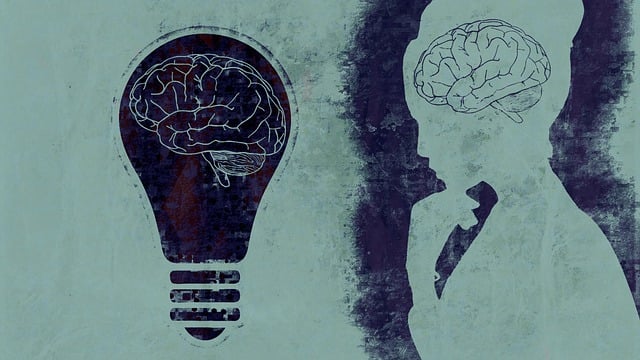In today's fast-paced world, prioritizing mental wellness is essential. Louisville Domestic Violence Therapy (LDVT) emphasizes the importance of self-assessment tools for individuals to actively manage their well-being. These tools help identify specific symptoms and triggers, guiding users to seek appropriate support or develop healthy coping mechanisms. LDVT employs clear, concise questions and scales, covering aspects like anxiety, depression, stress, and trauma, with diverse response options such as Likert scales. Incorporating user feedback and validation techniques ensures accurate self-reflection and personalized support through interventions and education programs. LDVT's holistic approach, combining advanced training, non-judgmental environments, Compassion Cultivation Practices, and cutting-edge assessment tools, enhances therapy outcomes and supports victims of domestic violence.
Mental wellness self-assessment tools play a crucial role in empowering individuals to take charge of their mental health. This article explores the development of such tools, focusing on Louisville Domestic Violence Therapy as a case study. We delve into understanding the pressing need for these assessments, identifying key areas like symptoms and behaviors, and designing effective questions. Additionally, we discuss incorporating feedback mechanisms and validation techniques for accurate results. By examining this process, we aim to enhance mental health support systems, benefiting individuals facing challenges similar to those in Louisville Domestic Violence Therapy.
- Understanding the Need for Self-Assessment Tools in Mental Health
- Identifying Key Areas of Focus: Symptoms and Behaviors
- Designing Effective Assessment Questions and Scales
- Incorporating Feedback and Validation Techniques
- Implementation, Training, and Continuous Improvement for Louisville Domestic Violence Therapy
Understanding the Need for Self-Assessment Tools in Mental Health

In today’s fast-paced world, prioritizing mental wellness is more crucial than ever. While professional therapy and counseling play a vital role in treating mental health issues, self-assessment tools are essential components that empower individuals to take an active role in their well-being. These tools provide a means for folks to gain insights into their thoughts, emotions, and behaviors, facilitating a deeper understanding of their mental state. For instance, Louisville Domestic Violence Therapy has recognized the need for comprehensive self-assessment resources, as many clients seek ways to manage stress, anxiety, and trauma independently between sessions.
The development of effective self-assessment tools is particularly important in the context of Mental Wellness Coaching Programs and Compassion Cultivation Practices. By offering individuals a way to track their progress, identify triggers, and cultivate healthy coping mechanisms, these tools can enhance Self-Care Practices. This proactive approach not only supplements traditional therapy but also equips people with valuable skills to navigate life’s challenges, ultimately fostering resilience and a stronger sense of mental wellness.
Identifying Key Areas of Focus: Symptoms and Behaviors

Identifying key areas of focus is a crucial step in developing effective mental wellness self-assessment tools. When creating assessments for individuals seeking Louisville Domestic Violence Therapy, it’s essential to delve into specific symptoms and behaviors that may indicate underlying mental health concerns. This includes assessing for common signs of depression, anxiety, trauma, or stress, which can manifest in various ways such as persistent sadness, irritability, insomnia, excessive worry, or even physical complaints like chronic headaches. By focusing on these areas, the assessment can help individuals recognize personal challenges and guide them towards seeking appropriate support, whether it’s through counseling, therapy, or self-care practices.
Furthermore, considering burnout prevention strategies for healthcare providers is integral to this process. As professionals in the field of mental wellness, it’s essential to acknowledge that healthcare workers themselves are susceptible to stress, depression, and burnout. Incorporating questions related to workload management, work-life balance, and coping mechanisms can provide valuable insights into an individual’s overall well-being. This knowledge can then be utilized to implement effective depression prevention and stress reduction methods, ensuring both the quality of care provided and the longevity of the healthcare provider’s career.
Designing Effective Assessment Questions and Scales

Effective mental wellness self-assessment tools require carefully crafted questions and scales that accurately gauge an individual’s emotional state and well-being. Each question should be clear, concise, and relevant to specific aspects of mental health, such as anxiety, depression, stress, or trauma. The Louisville Domestic Violence Therapy center has successfully utilized this approach in their programs, demonstrating the impact of tailored assessment tools.
When designing questions, it’s essential to consider a range of response options that reflect the spectrum of feelings and experiences. For instance, using Likert scales (e.g., from ‘Strongly Disagree’ to ‘Strongly Agree’) allows individuals to provide nuanced feedback. This approach enables professionals to gain deeper insights into an individual’s mental health landscape, facilitating more personalized support and guidance, whether through Crisis Intervention Guidance, Mental Health Education Programs Design, or Stress Management Workshops Organization.
Incorporating Feedback and Validation Techniques

Incorporating feedback and validation techniques is a pivotal step in developing effective mental wellness self-assessment tools. At Louisville Domestic Violence Therapy, we understand that creating an environment where individuals feel heard, understood, and supported is essential for accurate self-reflection and growth. By integrating user feedback into the design process, these tools can become more nuanced, catering to a diverse range of experiences and needs. This approach ensures that the assessments remain relevant, engaging, and helpful in addressing various mental health concerns, including burnout prevention and mood management.
Moreover, validation strategies play a crucial role in fostering empathy building. The ability to validate users’ emotions and perspectives not only encourages open communication but also strengthens their confidence in using these self-assessment tools. Ultimately, this holistic approach can lead to more meaningful interactions with mental health professionals, enhancing the overall effectiveness of therapy and support services available in Louisville Domestic Violence Therapy.
Implementation, Training, and Continuous Improvement for Louisville Domestic Violence Therapy

Louisville Domestic Violence Therapy (LDVT) aims to provide comprehensive support through the integration of innovative mental wellness self-assessment tools. Implementation begins with thorough training for therapists, ensuring they can effectively guide clients through the assessment process while fostering a safe and non-judgmental environment. This includes introducing Compassion Cultivation Practices to enhance therapist-client relationships and reduce countertransference.
Continuous improvement is a key aspect of LDVT’s strategy. Regularly updating self-assessment tools to reflect the latest research in mental health, particularly in Risk Management Planning for Mental Health Professionals, ensures that the therapies remain effective and relevant. Additionally, integrating anxiety relief techniques within these tools empowers clients to manage stress and promote overall well-being, fostering resilience amidst challenging circumstances.
Mental wellness self-assessment tools play a pivotal role in early detection and intervention for various mental health issues. As demonstrated by the successful implementation of these tools at the Louisville Domestic Violence Therapy center, they not only empower individuals to take charge of their mental well-being but also provide therapists with valuable data to tailor treatment plans effectively. By focusing on key areas such as symptoms, behaviors, and incorporating validated assessment techniques, we can enhance accessibility and quality of care. Continuous improvement through user feedback ensures these tools remain relevant and beneficial for diverse populations.













